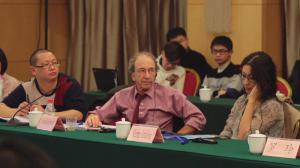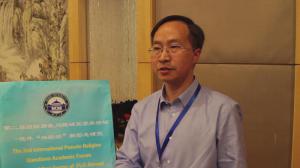International forum in Wuhan, China reaches consensus on nature and definition of religious cults
From December the 2nd to 3rd, an in-depth discussion on these issues was held in Wuhan, China. Chinese and foreign experts and scholars took part in an international seminar on the study of cults and pseudo religious groups and gave presentations on the nature of pseudo religions from the perspectives of different disciplines, including religion, psychology, philosophy, journalism and communication, medicine, etc.
Professor Huang Chao from the Wuhan University School of Philosophy said that cults were not religious groups and could not be defined by their doctrines alone.
"When we try to identify cults, we don't use theology or religion. The cult’s actual behaviour is mainly used. In administering cults in countries around the world, therefore, we adopt a legal approach. Some countries have existing laws, others use special legislation to crack down on cults."
Huang Chao said it was necessary to define pseudo religious groups from the perspective of their actions and criminal behaviour, rather than from their doctrines and ideologies. Actions of a typical cult are self deification, spreading fallacies and causing injury and death. Accusations of such cult-like behaviour have been levelled at Falun Gong and its founder Li Hongzhi in the past.
Campbell Fraser of Griffith University, Australia recounted his experience working in China.
“The reason that we're here today is to try and make sure that the whole community understands [cults]. And that's why we're here today - to get the real truth out." Campbell Fraser said.
Cults and pseudo religions have long been a problem around the world. Experts said that cults and pseudo religious groups did not promote the harmonious development of society and it was important to distinguish cults from "real" religions and show vigilance against all types of pseudo religious organizations that appear under the banner of religion in the world and not be subject to deception.
About 30 scholars who are influential in the study of cults and new religious movements took part in the forum, from countries including the US, Canada, Italy, Kyrgyzstan and Sri Lanka.
Jenny Lee
Wuhan University
email us here
+86 027-68771009
Legal Disclaimer:
EIN Presswire provides this news content "as is" without warranty of any kind. We do not accept any responsibility or liability for the accuracy, content, images, videos, licenses, completeness, legality, or reliability of the information contained in this article. If you have any complaints or copyright issues related to this article, kindly contact the author above.



